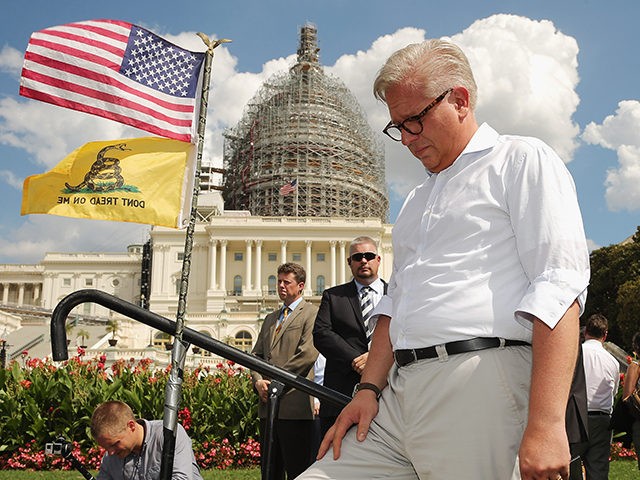In the following op-ed for the New York Times titled “Empathy for Black Lives Matter,” The Blaze founder Glenn Beck compares the Black Lives Matter movement to the Tea Party and describes Black Lives Matter “believers” as “decent, hardworking, patriotic Americans” who “feel disenfranchised and aggrieved.” This op-ed comes on the heels of more bad news for Beck’s terminally cash-strapped conservative media empire.
In a recent speech to a group of conservatives, I made what I thought was a relatively uncontroversial point about the commonalities between Trump supporters and Black Lives Matter activists. I thought this was a simple idea, but the criticism was immediate and sharp: How dare I try to understand the “other side”?
But as people, wouldn’t we all benefit from trying to empathize with people we disagree with?
I consider myself a “classical liberal” — a.k.a. “constitutional conservative” — and I believe the greatness of our country lies in our founders’ creation of a system that allows and encourages all voices to be heard. The only way for our society to work is for each of us to respect the views of others, and even try to understand and empathize with one another. I have always tried to work toward this goal, even though I have often been guilty of conflating the individual with the whole.
My point about empathy is especially pressing today, since these movements and others — the Tea Party, the Bernie Sanders campaign, Occupy Wall Street — share similar grievances: In their own ways, they say: “I am not being heard,” “I don’t feel like I belong anymore,” “I have no control over my future.” I am not placing all of these movements on the same footing in terms of my personal position, nor am I suggesting that, because I find them to be analogous, they are equal. But there are, in my opinion, strong commonalities, both good and bad.
Each movement is made up of at least three factions: believers, political insiders and instigators. I saw these divides emerge in the Tea Party, where self-serving “leaders” — but really just insiders — tried to take control of the movement to their own benefit. Not surprisingly, we have seen the same thing happen with the Occupy Wall Street movement, and the activists who gathered in Ferguson, Mo. (be it as insiders or as instigators).
I am not looking to condemn, I am looking to understand. For some readers, this may be surprising to hear coming from someone like me. But on my show, I often discuss pivot points. Our opinions or perspectives are not impervious to change — nor should they be. My take on Black Lives Matter has not changed 180 degrees, but it has certainly evolved. Here is my pivot point.
Read the rest here.

COMMENTS
Please let us know if you're having issues with commenting.